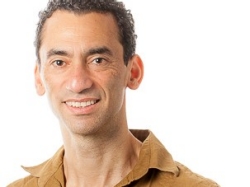The main objective of this research-creation project is to develop insights into how to safely engage both specific target audiences and a wider general public as reflective listeners of personal narratives by both a victim and an offender of sexual violence who have undergone a successful restorative justice process.
To achieve its objective, the project uses the pre-recorded narratives by a man, “Jeremy”—who committed serious sexual crimes and second-degree murder in the past—who has been a law-abiding citizen on parole for more than ten years. The project also uses the narrative of a woman, Julie Ann Carpini —a victim of multiple forms of sexual violence including incest, rape and conjugal violence—who has gone a long way in terms of coping with the wounds that sexual violence has left on her.
Julie Ann is a collaborator in the project and works along theatre students in the search for ways to re-perform her narratives. Both narratives will be used as material to create an oral history performance. In this talk, I reflect on the process and the insights gained so far.




